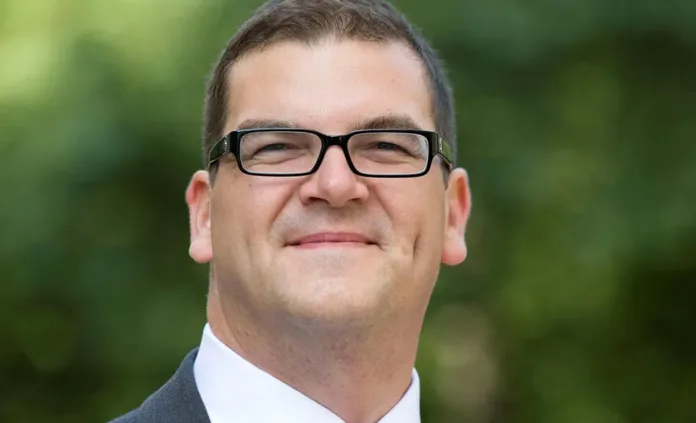Robbins set to fly to China amid furious backlash over the collapse of the high-stakes espionage trial
Oliver Robbins, the top civil servant at the Foreign, Commonwealth & Development Office (FCDO), is due to fly to China next week for long-planned official duties, at a moment when ministers are coming under withering scrutiny over the sudden collapse of a high-profile espionage trial.
The trial in question centred on Christopher Cash and Christopher Berry — the former a parliamentary researcher — who had been charged with spying for Beijing. Both men staunchly denied the accusations. But with their case now dropped, they face no case to answer. The decision has unleashed fierce political pressure on the government to explain what went wrong.
Conservative MPs are demanding that ministers be hauled into Parliament to clarify who was involved in the decision to pull the prosecution. The trial was due to start this week. Downing Street insists that no official or ministerial interference had taken place. Yet questions are raging about whether diplomatic concerns influenced the outcome.
In an extraordinary revelation, Stephen Parkinson, the Director of Public Prosecutions, admitted prosecutors were compelled to abandon the case because they could not extract a crucial government witness statement declaring China a “threat to the national security of the UK.” He said efforts had been made “over many months” to secure it, but the evidence simply would not materialise. Without that statement, Parkinson argued, the case “could not succeed.” Legal experts, however, have cast doubt on whether that declaration was legally necessary.
The timing of Robbins’ trip is striking. It coincides with intense political pressure over how and why the espionage case was withdrawn. Some critics argue that the government’s evolving diplomacy with Beijing may have played a role. The collapse raises fresh doubts as the UK moves closer to a fateful decision over a proposed Chinese “super-embassy” in east London.
Robbins is not the first senior official to make the journey. Business Secretary Peter Kyle visited China for trade talks in September. National Security Adviser Jonathan Powell travelled there in July for high-level meetings. And it is widely expected that Prime Minister Keir Starmer himself will visit China early next year.
Embed from Getty Images
A government spokesperson insisted the trip was routine, part of the permanent under-secretary’s regular rotation among FCDO overseas missions. They pointed out that Robbins’ predecessor visited China in April 2023.
Sources indicate that Robbins attended a Whitehall meeting in early September where Powell outlined that the government would avoid describing China as an “enemy” in its court evidence. Under the 1911 Official Secrets Act, to convict the defendants, prosecutors had to prove they acted for an “enemy” of the state. Without that label, the prosecution’s foundation crumbled.
Parkinson told MPs that a July 2025 court ruling involving six Bulgarians accused of spying for Russia had tightened the legal definition of “enemy,” making the requirement more exacting. Some jurists dispute that interpretation, arguing the legal bar may in fact have been lowered.
Starmer, speaking as the controversy roiled Westminster, insisted that the case against Cash and Berry must be judged by the circumstances in 2022 and early 2023 — when the alleged offences took place — and insisted the spotlight should fall on the Conservative government in office then.
Philip Barton, Robbins’ predecessor, visited Beijing in spring 2023, meeting senior Chinese figures such as Liu Jianchao, head of the Chinese Communist Party’s international department. Liu, who loomed large in earlier diplomatic exchanges, has since been replaced by Liu Haixing.
As Robbins prepares to depart, the espionage collapse looms as one of the most politically explosive episodes of this parliament. Ministers will need to explain not just legal technicalities, but whether geopolitics and diplomatic expedience undermined the pursuit of national security. The public and Parliament alike now await answers.
